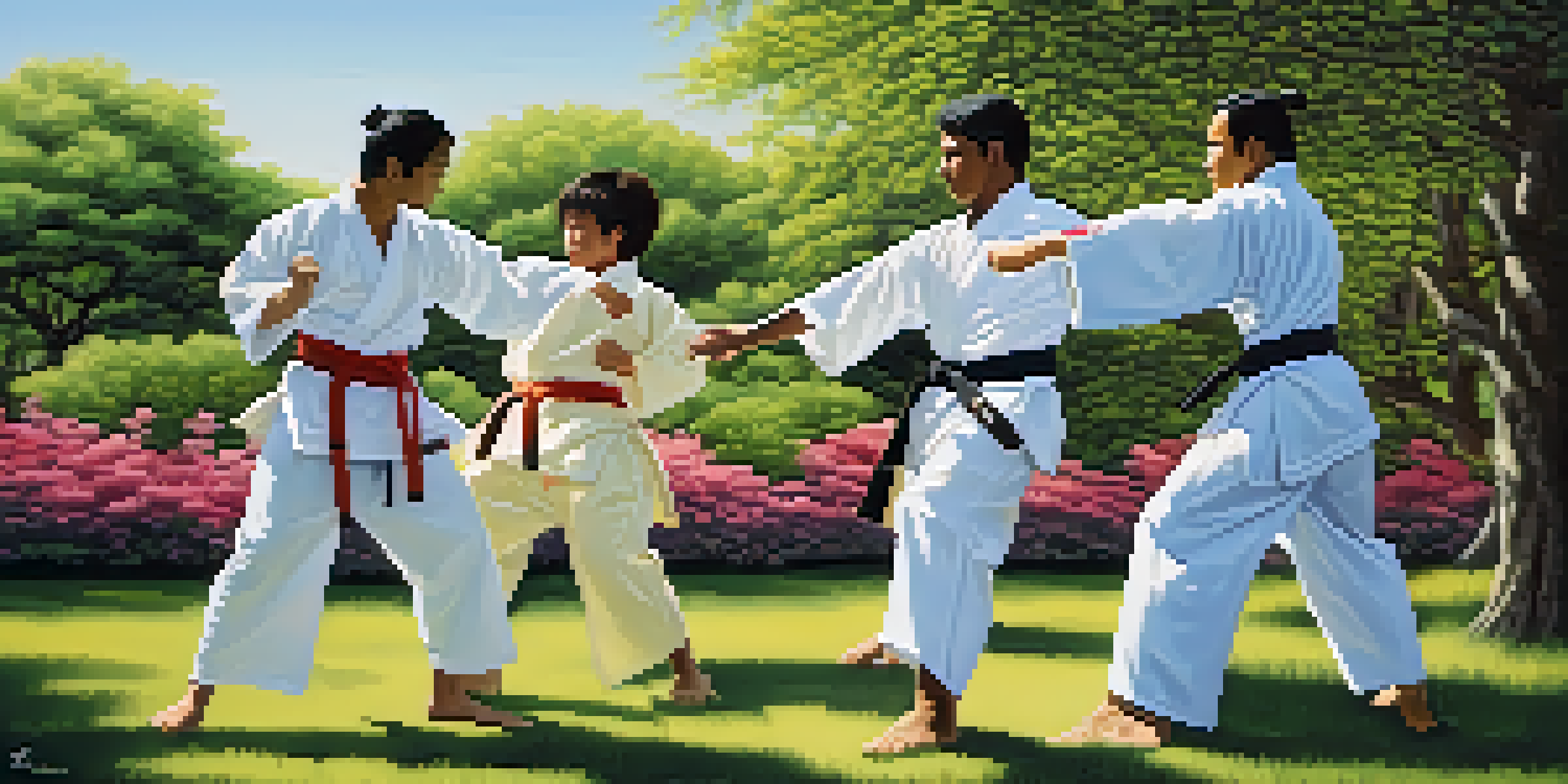The Impact of Colonialism on Martial Arts Development Worldwide

Understanding Colonialism and Its Global Reach
Colonialism refers to the practice of domination where a country establishes control over foreign territories. This often led to the imposition of foreign cultures, languages, and systems of governance. As nations expanded their empires, they not only claimed land but also influenced the social fabric of the regions they occupied. Understanding this context is crucial when examining its impact on various forms of martial arts.
The Fusion of Cultures in Martial Arts
Martial arts often embody the cultural identity of a society, and colonialism prompted a unique blend of styles. For instance, the Japanese martial arts of Judo and Karate saw influences from Western boxing and wrestling during the early 20th century. This cultural exchange resulted in the evolution of these arts, creating hybrid forms that reflected both indigenous and foreign techniques. Such fusions illustrate how colonialism acted as a catalyst for transformation.
Colonialism Influenced Martial Arts
Colonialism led to the fusion of indigenous and foreign martial arts, reshaping their techniques and cultural significance.
Suppression and Survival of Indigenous Practices
Colonial powers frequently sought to suppress local traditions, including martial arts, viewing them as threats to their authority. In many cases, indigenous fighting styles were banned or marginalized, leading to a decline in their practice. However, these arts often survived in secret, preserved by passionate practitioners. The resilience of these martial traditions showcases the enduring spirit of local cultures despite external pressures.
Reinterpretation of Martial Arts Post-Colonialism
After gaining independence, many nations began to reinterpret their martial arts as symbols of national identity and pride. This resurgence was not just about reclaiming techniques but also about redefining them to reflect contemporary values. For example, countries like Brazil revitalized Capoeira, emphasizing its historical significance and cultural roots. Such movements highlight how post-colonial societies use martial arts as a means of cultural expression and healing.
Martial Arts as Social Change Tools
Today, martial arts programs are being used to empower communities and promote social justice, rooted in their historical context.
Globalization and the Spread of Martial Arts
In the age of globalization, traditional martial arts have crossed borders, resulting in a worldwide community. The internet and social media platforms have accelerated this process, allowing practitioners from diverse backgrounds to share techniques and philosophies. This global exchange has led to the rise of mixed martial arts (MMA), which blends styles from various cultures, showcasing the lasting impact of colonial exchanges on modern combat sports.
Martial Arts as Tools for Social Change
Today, many martial arts organizations are using their platforms for social change, addressing issues like inequality and violence. In some communities, martial arts programs are specifically designed to empower marginalized youth and promote discipline and respect. This transformation is rooted in the historical context of colonialism, where martial arts often served as a means of resistance. By fostering positive change, martial arts continue to evolve and serve as a voice for social justice.
Gender Roles Evolving in Martial Arts
The feminist movements have challenged traditional gender roles in martial arts, leading to greater inclusivity and empowerment for women.
The Role of Women in Martial Arts Evolution
Colonialism not only influenced martial arts techniques but also affected gender roles within these practices. Many traditional martial arts were male-dominated, but the feminist movements of the late 20th century began to challenge these norms. Women started to reclaim their place within martial arts, leading to the establishment of female-led schools and competitions. This shift has been pivotal in redefining the narrative surrounding martial arts as inclusive and empowering for all genders.
Looking Ahead: The Future of Martial Arts
As we look to the future, the impact of colonialism continues to shape the evolution of martial arts worldwide. The blending of styles and the rise of new practices will likely persist, reflecting the ongoing dialogue between cultures. Additionally, the focus on inclusivity and social justice within martial arts communities promises to foster a more equitable environment for practitioners. Ultimately, understanding this historical context enriches our appreciation of martial arts as a dynamic and evolving art form.
Colonialism's Impact on Martial Arts
Colonialism led to the suppression of indigenous martial arts while simultaneously prompting cultural exchanges that birthed new hybrid forms.